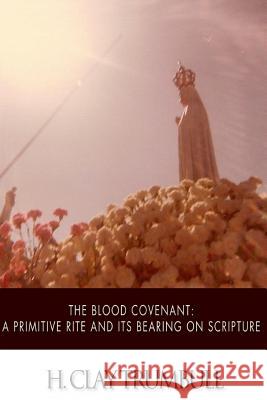The Blood Covenant: A Primitive Rite and its Bearings on Scripture » książka
The Blood Covenant: A Primitive Rite and its Bearings on Scripture
ISBN-13: 9781508570783 / Angielski / Miękka / 2015 / 122 str.
This is a compilation of lectures that look at ancient religious practices and how they influenced subsequent religions in the Holy Land, such as Christianity. From the preface: "Having an engagement to deliver a series of lectures before the Summer School of Hebrew, under Professor W. R. Harper, of Chicago, at the buildings of the Episcopal Divinity School, in Philadelphia, I decided to make this rite and its linkings the theme of that series; and I delivered three lectures, accordingly, June 16-18, 1885. The interest manifested in the subject by those who heard the Lectures, as well as the importance of the theme itself, has seemed sufficient to warrant its presentation to a larger public. In this publishing, the form of the original Lectures has, for convenience sake, been adhered to; although some considerable additions to the text, in the way of illustrative facts, have been made, since the delivery of the Lectures; while other similar material is given in an Appendix. From the very freshness of the subject itself, there was added difficulty in gathering the material for its illustration and exposition. So far as I could learn, no one had gone over the ground before me, in this particular line of research; hence the various items essential to a fair statement of the case must be searched for through many diverse volumes of travel and of history and of archaeological compilation, with only here and there an incidental disclosure in return. Yet, each new discovery opened the way for other discoveries beyond; and even after the Lectures, in their present form, were already in type, I gained many fresh facts, which I wish had been earlier available to me. Indeed, I may say that no portion of the volume is of more importance than the Appendix; where are added facts and reasonings bearing directly on well-nigh every main point of the original Lectures. There is cause for just surprise that the chief facts of this entire subject have been so generally overlooked, in all the theological discussions, and in all the physio-sociological researches, of the earlier and the later times. Yet this only furnishes another illustration of the inevitably cramping influence of a pre-conceived fixed theory, -to which all the ascertained facts must be conformed, -in any attempt at thorough and impartial scientific investigation. It would seem to be because of such cramping, that no one of the modern students of myth and folk-lore, of primitive ideas and customs, and of man's origin and history, has brought into their true prominence, if indeed he has even noticed them in passing, the universally dominating primitive convictions: that the blood is the life; that the heart, as the blood-fountain, is the very soul of every personality; that blood-transfer is soul-transfer; that blood-sharing, human, or divine-human, secures an inter-union of natures; and that a union of the human nature with the divine is the highest ultimate attainment reached out after by the most primitive, as well as by the most enlightened, mind of humanity.""
Zawartość książki może nie spełniać oczekiwań – reklamacje nie obejmują treści, która mogła nie być redakcyjnie ani merytorycznie opracowana.











